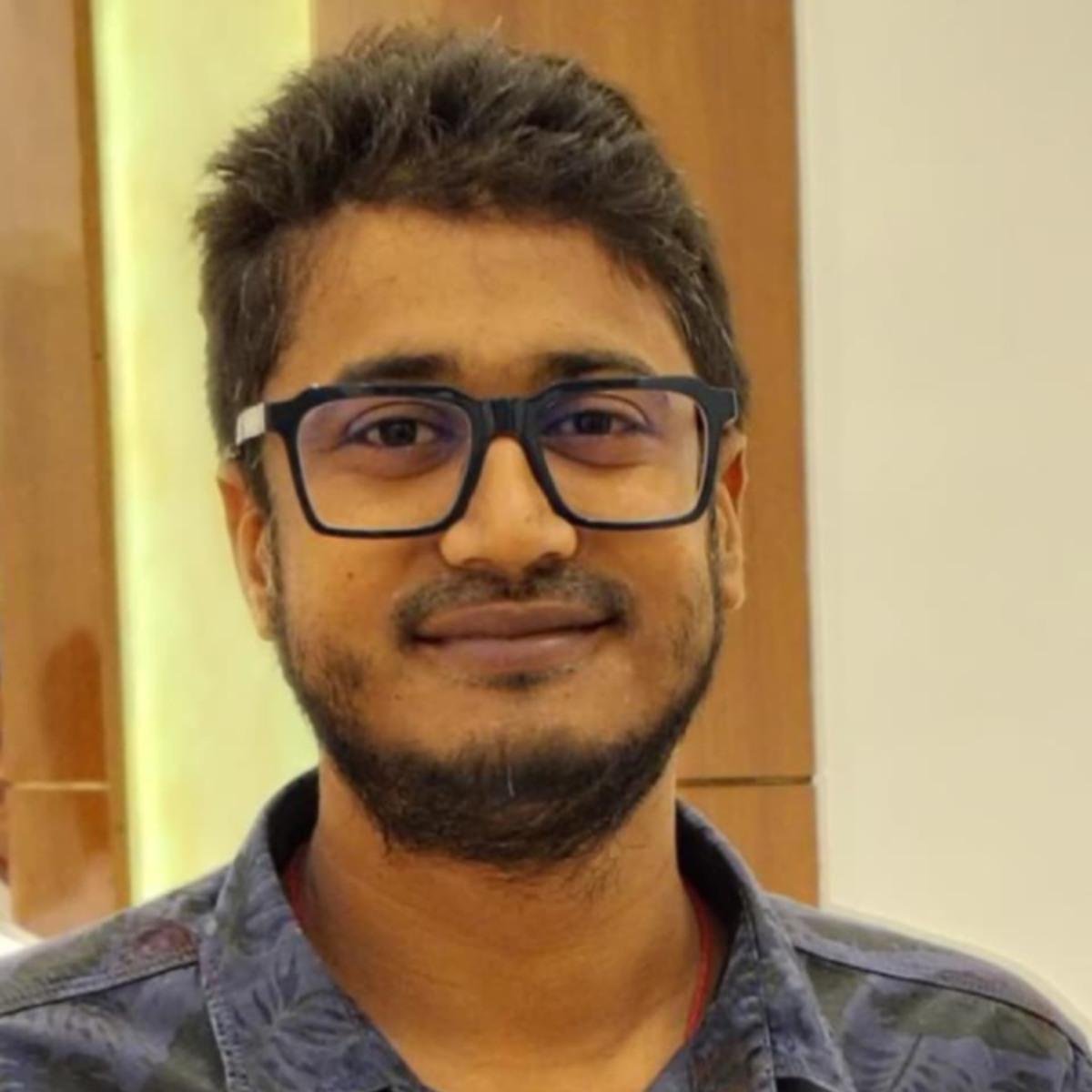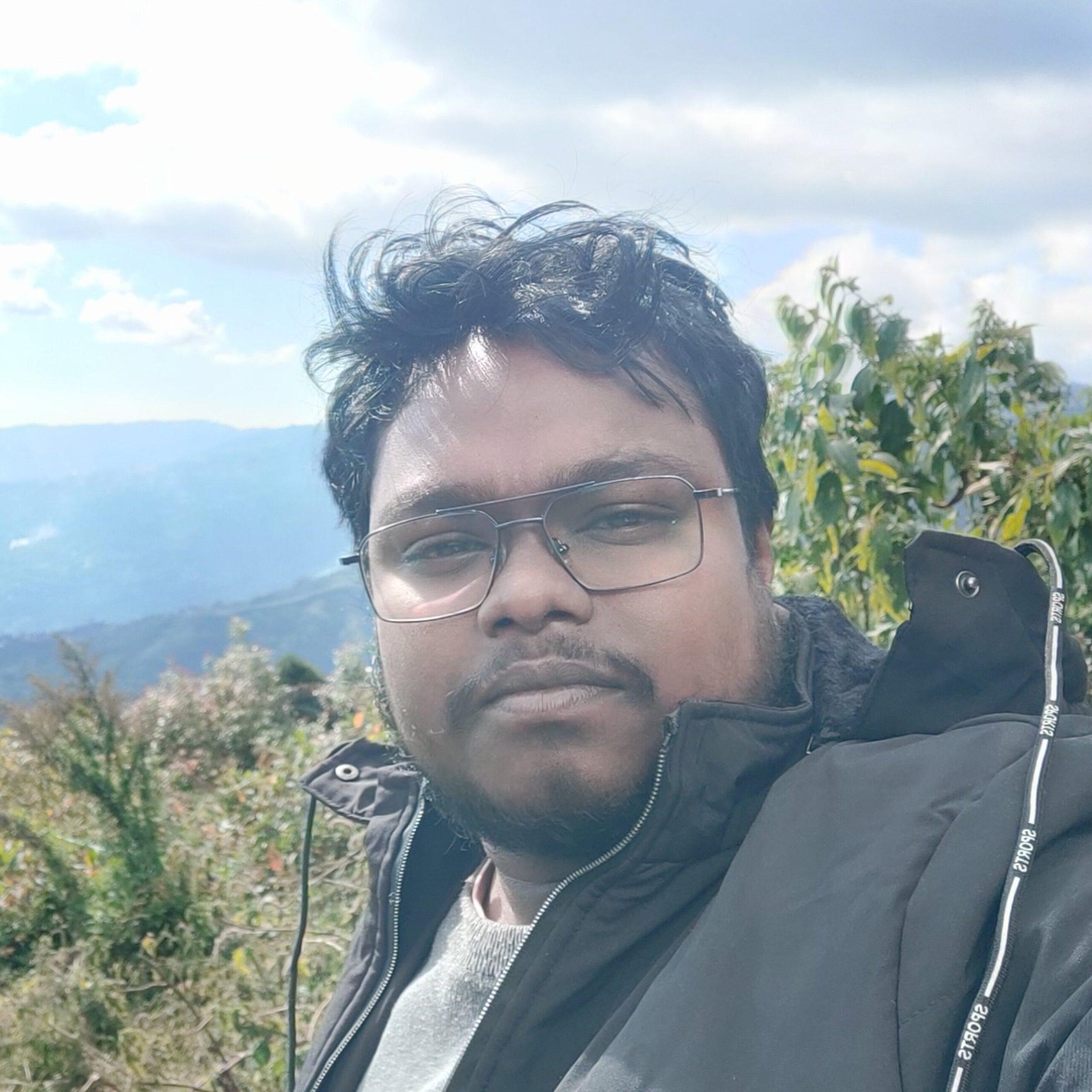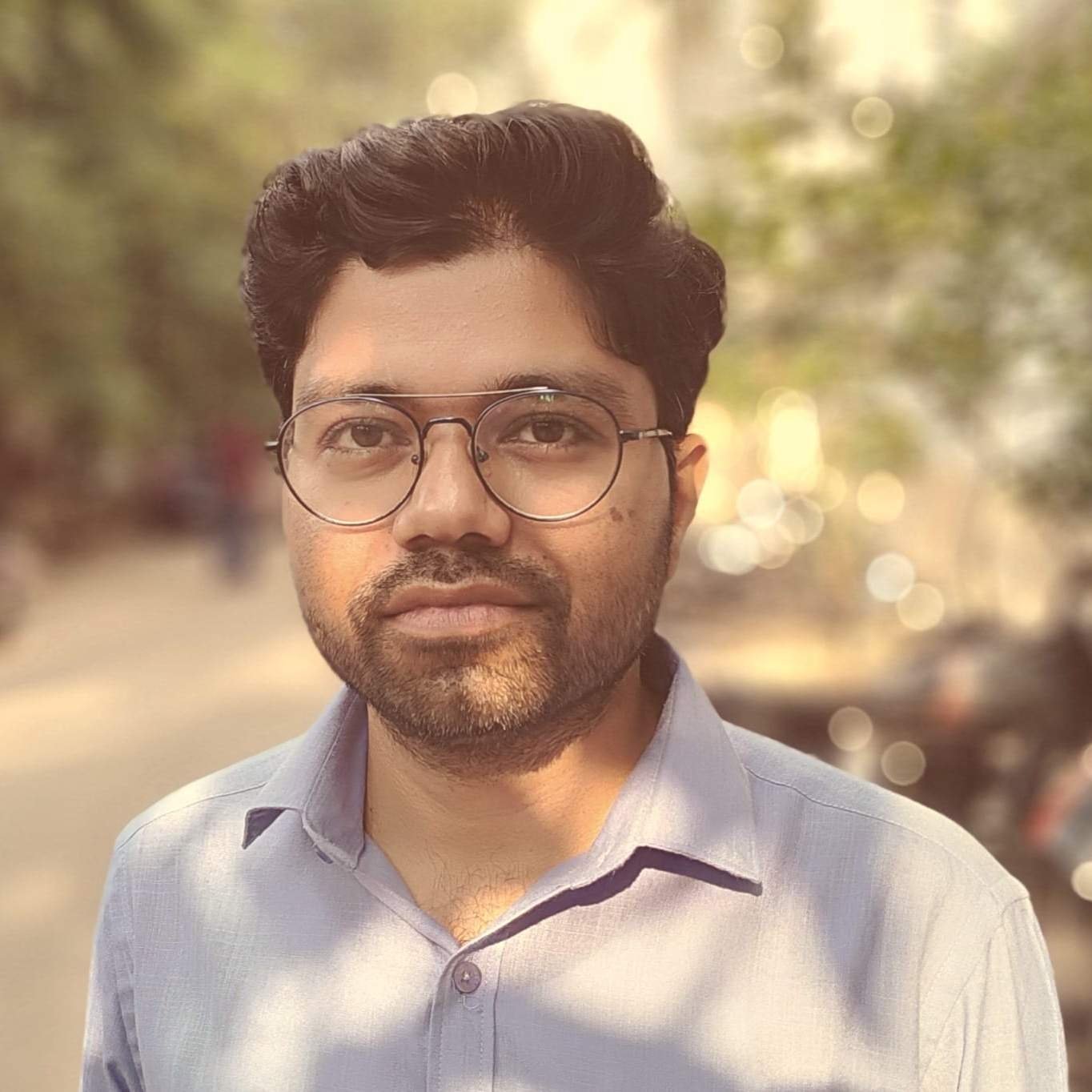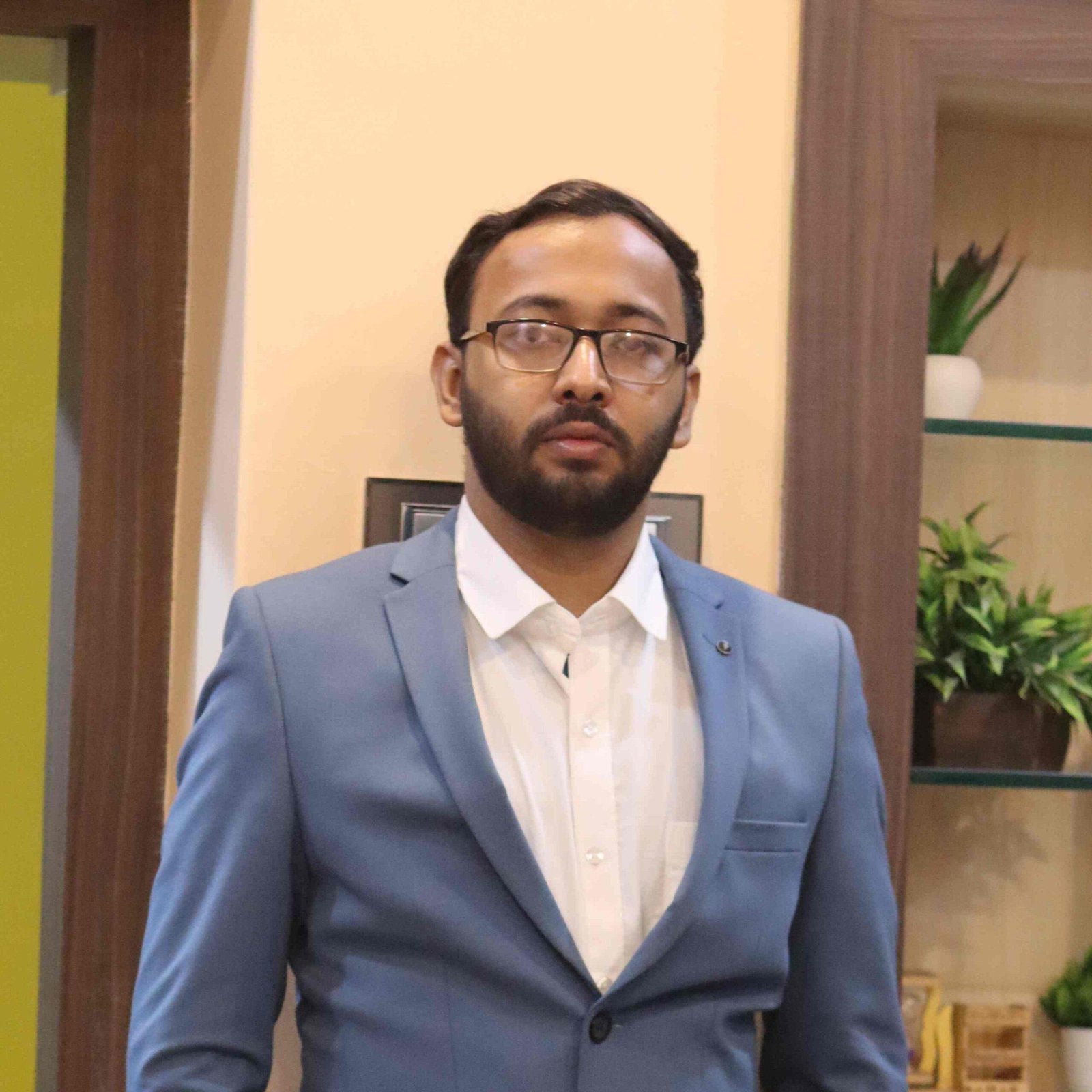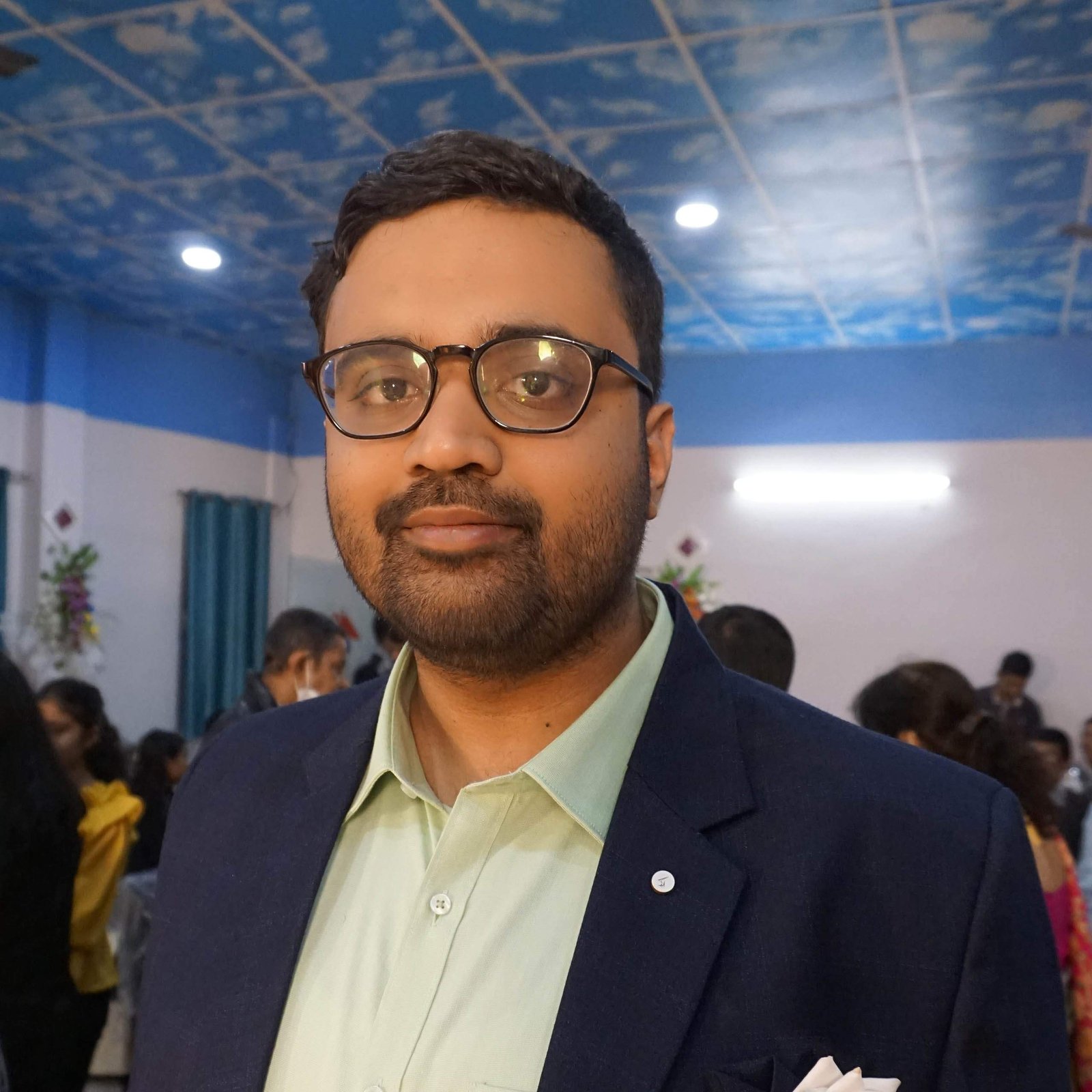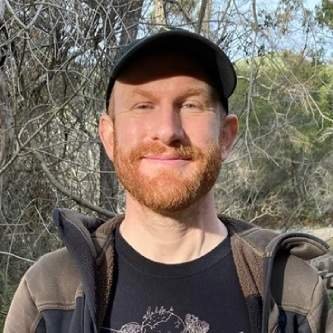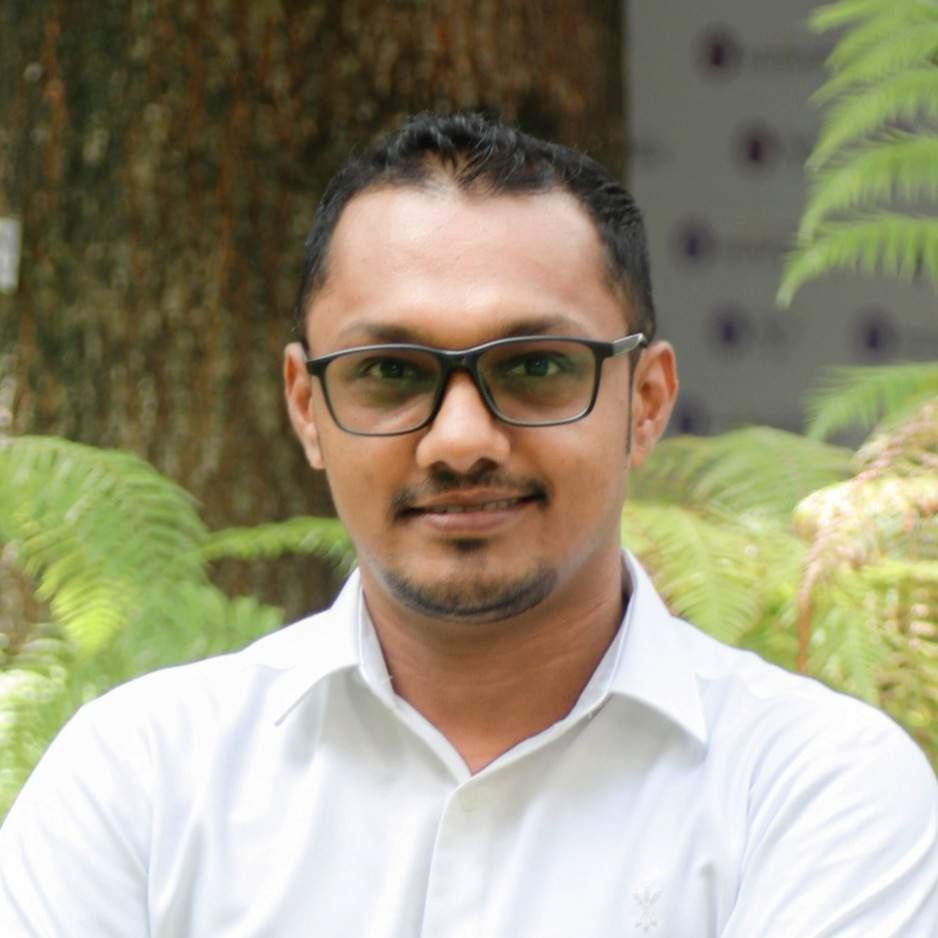WELCOME TO ECO TRIBE FOUNDATION

Who We Are
Leveraging years of hands-on expertise in sustainable agriculture, we empower farmers across India to enhance their livelihoods while embracing eco-friendly practices. Our multidisciplinary team—comprising agronomists, trainers, healthcare researchers, and community outreach specialists—provides tailored training, vital resources, and continuous support designed to meet the specific needs of rural communities.
Driven by a deep commitment to rural development, our staff works hand in hand with local farmers to foster a collaborative, knowledge-sharing environment. Together, we cultivate a culture of innovation, resilience, and sustainable growth—ensuring both agricultural productivity and ecological balance for future generations
Our Vision
Eco Tribe Foundation envisions thriving rural communities living in harmony with nature. We empower women and smallholder farmers through indigenous seed stewardship, sustainable agriculture, and climate-smart practices. By advancing biodiversity conservation and waste-to-wealth initiatives, we promote resilient livelihoods and safeguard our natural heritage. Having the conviction that true progress extends beyond the fields, we are dedicated to strengthening rural healthcare, with a particular focus on women’s and child health. Through community-driven awareness, prevention, and rehabilitation programs, as well as robust research and grassroots engagement, we tackle both communicable and non-communicable diseases to improve public health outcomes for all. We are relentless in our pursuit of reducing socio-economic inequality, ensuring that opportunities and benefits reach the most marginalized. Our vision encompasses the preservation of anthropological heritage, honoring traditional ways of life and cultural diversity as integral threads in the fabric of resilient, self-reliant communities.
Together, Eco Tribe Foundation strives to build a future where empowered people, thriving ecosystems, and enduring cultural heritage create balanced, sustainable societies—for today and generations yet unborn.
Founder's Vision
“As Chairperson, my responsibility is to lead with integrity, humility, and vision. Developing my leadership, empowering others, embracing diversity, and mentoring future leaders are not isolated tasks -they are interconnected commitments. By modeling these values, I help shape a resilient, inclusive, and impact-driven organization that stays true to its purpose.”
MEET OUR TEAM
- Advisory Committee
- Board of Directors
- Visiting Scientists
- Research Consultants

Prof Dr Marc Stadler
Helmholtz-Zentrum für Infektionsforschung GmbH
Marc Stadler studied biology at the University of Kaiserslautern and received his PhD in 1993 the subject of new antibiotics and nematicides from predacious fungi. His PhD project was supported by a grant from the German National Scholarship Foundation. After a post-doctoral stay funded by the DFG at University of Lund/Sweden in natural product chemistry, Marc Stadler joined the pharmaceutical industry in 1995 and worked in the natural products department of Bayer Healthcare (Pharma Division).
Together with other Bayer researchers, he co-founded the company InterMed Discovery GmbH in 2006, where he worked as Department Head until April 2012. During his industrial career (17 years in total) he was responsible for the fungal and microbial culture collections , the fermentation and biotechnological process development, as well as a natural product chemical laboratory.
Concurrently, he was teaching at University of Bayreuth, where he completed his habilitation in 2009 and received the venia legendi in Mycology.
Marc Stadler is a globally recognized expert in industrial microbiology and mycology, as well as fungal biodiversity research and natural product chemistry. He acts on the Editorial Boards of leading mycological journals such as Studies in Mycology and Fungal Diversity, and is President-Elect of the International Mycological Association (IMA).
He took over his current position at HZI in 2012 and is teaching biology and biotechnology at Technical University of Braunschweig. In 2013, he was also appointed as Visiting Professor at CAS Institute of Microbiology, State Key Laboratory of Mycology and Lichenology, Beijing, P.R. China.
Diptosh Das envisions a world where fungal intelligence and biodiversity science form the backbone of climate resilience, sustainable food systems, and ecosystem regeneration. His interdisciplinary work merges the microcosmic precision of mycology with the macro-level urgency of environmental governance, demonstrating how the smallest organisms can influence the planet’s largest sustainability outcomes.At the heart of his research lies a conviction that fungi—nature’s master recyclers and symbionts—are critical allies in achieving the United Nations Sustainable Development Goals ... (SDGs). By decoding fungal biodiversity and ecological functions, Diptosh works to translate microbial data into applied sustainability strategies that strengthen communities, enhance agricultural productivity, and restore degraded ecosystems. His approach operates across three intersecting dimensions: scientific discovery, policy translation, and community transformation. In scientific terms, he investigates the adaptive mechanisms of fungi across terrestrial, coastal, and marine systems, emphasizing their roles in nutrient cycling, stress tolerance, and ecosystem recovery under changing climatic conditions. Through advanced molecular taxonomy, he reveals the unseen diversity that underpins ecosystem services and natural resilience. From a policy standpoint, his research aligns with SDG 13 (Climate Action), SDG 14 (Life Below Water), SDG 15 (Life on Land), and SDG 17 (Partnerships for the Goals)—advancing the integration of fungal data into biodiversity conservation frameworks and environmental decision-making. As a collaborator with governmental and academic bodies, he bridges scientific knowledge with biodiversity governance, ensuring that environmental policies are rooted in microbial ecology and sustainable innovation. At the community level, through the Eco Tribe Foundation, Diptosh leads grassroots initiatives that translate ecological science into everyday resilience practices—reviving indigenous crops, empowering farmers with bio-based soil solutions, and cultivating climate-conscious education. His participatory model connects local action to global sustainability pathways, embodying the “think globally, act locally” ethos at the heart of the SDGs. Ultimately, Diptosh Das’s vision extends beyond research—toward fostering an ecological civilization where scientific inquiry, cultural wisdom, and environmental stewardship coexist in harmony. His fusion of molecular mycology, biodiversity governance, and sustainability science exemplifies a new generation of research leadership: one that transforms knowledge into tangible impact, empowering humanity to adapt, regenerate, and thrive in the face of global environmental change.
Kuntal Bera is a research professional with over six years of experience in plant science and agricultural research. He is currently pursuing a Ph.D. in Botany at Raiganj University while working as a Research Fellow at Uttar Banga Krishi Viswavidyalaya. He completed his bachelor's degree from Burdwan University and his master's degree from North Bengal University. His expertise encompasses plant biochemical and physiological reactions, crop physiology,abiotic stress tolerance in crops, and the larger area of sustainable agriculture. His work specifically focuses on how plants ... perceive and resist abiotic stresses, which addresses important issues in crop production. His area of interest is the physiological and biochemical processes that underlie plant stress responses in order to find ways to improve them. His research also looks into the possibility of using different physical characteristics as seed treatment agents to increase crop productivity by enhancing abiotic stress tolerance. He has published in many peer-reviewed journals, which attests to his contributions to these fields of study.
Prajesh Dutta has been serving as dedicated faculty member in Department of Botany at Gour Mahavidyalaya, Malda, for over twelve years. His academic journey includes B.Sc. (Hons.) in Botany from North Bengal University (2010), M.Sc. in Molecular Biology & Biotechnology from University of Kalyani (2012), and M.Phil. in Botany from University of Gour Banga (2017). He is presently pursuing Ph.D. in Botany at Raiganj University. He has qualified national and state-level examinations including GATE (2015), WB SET (2015), ... and CSIR UGC NET (2016), in Life Sciences. His research interests span Environmental Stress and Plant-microbe Interaction. He has published his findings in reputed international journals and edited volumes. He had completed summer project on biochemical impact of fungicide treatments on groundnut in Department of Plant Pathology, Bidhan Chandra Krishi Viswavidyalaya in 2011. In 2024, he monitored and provided technical inputs in the programme “Conservation of indigenous crop diversity through local livelihood promotion by sustainable cultivation and marketing involving local backward communities” conducted in Begunbari village, Habibpur Block, Malda district.
Dr. Sarbashri Bank is a vascular biochemist and molecular pharmacologist with extensive expertise in vascular biochemistry, circadian rhythm research, proteomics, and translational drug development—particularly in the context of cardiovascular and metabolic diseases. He earned his Ph.D. in Biochemistry from Vidyasagar University, where he conducted collaborative research under the mentorship of Prof. Asru K. Sinha, a renowned cardiovascular scientist. Dr. Bank's doctoral research focused on elucidating the ... mechanisms by which a stress-induced protein contributes to the development of acute myocardial infarction, specifically through pathways involving platelet aggregation and insulin resistance. Recently, he completed a postdoctoral fellowship in the laboratory of Prof. Das at the University of Calcutta. His postdoctoral work integrates molecular biology, proteomics, and systems-level analyses to investigate endothelial dysfunction, nitric oxide biology, central-peripheral circadian rhythm regulation, biomarker discovery and validation, and the development of novel therapeutic strategies for cardiovascular and metabolic disorders. Dr. Bank brings a unique blend of expertise in both discovery and translational science, complemented by his experience in pharmaceutical research during his doctoral and postdoctoral training. His research excellence has been recognized through numerous prestigious awards, including the DST INSPIRE Fellowship (Gold Medalist), Newton-Bhabha Fellowship at the University of Oxford, UGC Dr. D.S. Kothari Postdoctoral Fellowship, EMBO Travel Grant, DST-SERB Travel Award, and CSIR Travel Award, among others. He has authored 25 original research articles published in reputed journals such as the European Journal of Preventive Cardiology, Scientific Reports, Bioscience Reports, Journal of Nanobiotechnology, Chemosphere, PLOS ONE, and Cardiology Research and Practice. In addition, he holds a granted patent and has contributed to multiple book chapters. Dr. Bank also serves as a peer reviewer for several scientific journals and is an academic editor.
He is an agriculture learner with a passion for combining field experience and technology to uplift farming communities. During his graduation, he gained hands-on exposure to real-world agriculture and technology transfer through the RAWE program, working directly with farmers. Later, in his master’s, he conducted research on the effect of EMS on lentil varieties,gaining expertise in crop protection and disease management. Passionate about integrating science and ... technology to benefit farmers, he has also developed WordPress websites and PWAs, including apps for KrishiPathshala and EcoTribe Foundation.
Soham Mukherjee is a Doctoral Scholar in Seed Science and Technology in Uttar Banga Krishi Viswavidyalaya. He completed his Graduation in Agriculture, followed by Masters degree in Seed Science from Bidhan Chandra Krishi Viswavidyalaya. During RAWE (Rural Agriculture Work Experience) in undergraduate studies and Farmers’ Advisor during an internship in Jiva Ag. Services, he has gained experience in field level issues faced by the farmers for different ... crops. Soham has also worked as Course Facilitator in DAESI (Diploma in Agricultural Extension Services for Input dealers) in FACC, BCKV, where he was responsible for coordination and management for course work of the registered candidates enrolled in it. He is currently working in the improvement of Wheat crops through priming with special emphasis on abiotic stresses and their effect in biochemical and molecular level. He also had expertise in seed production practices and quality assessment gained over the course of research in Seed Science and Technology.
Dr Rajesh Jeewon is a distinguished academic from Mauritius. He currently works as an Associate Professor at the University of Mauritius; a Distinguished Scientist Fellow at King Saud University, Saudi Arabia and has been nominated for the Chinese Academy of Sciences (CAS) President's International Fellowship (hosted by the Kunming Institute of Botany, China). He graduated with First Class Honours with Double Gold Medals and completed his PhD from the University of Hong Kong (HKU). He then did his postdoctoral Fellow at the University of Portsmouth, UK, and then continued his career as a Post-Doctoral Research Fellow and Honorary Assistant Professor at HKU. He then shifted his passion towards teaching as well and completed a Certificate of Teaching & Learning in Higher Education (Level 1 & 2; University of Hong Kong, 2007, Passed with Excellence) and also a Certificate in Teaching and Learning for tertiary education (University of Mauritius, 2010). In 2009, he joined the University of Mauritius as a lecturer and was subsequently promoted to Senior lecturer and then Associate Professor. Since then, he has been appointed as the Head of the Department (in the Faculty of Science for 2 years and 2 years in the Faculty of Medicine and Health Sciences) and was acting Dean as well for both Faculties on a number of occasions. With respect to curriculum development, Dr Jeewon has also mounted accredited commissioned programs for external organizations. He is an active member of various departmental, faculty, and university committees, external academic boards, and participates in a number of national and international committees. Additionally, he engages in community services, media presentations, and contributes to assistance in continuing education. ... Throughout his career, Dr Jeewon has secured a number of research grants and has successfully supervised PhD students, as well as over 100 undergraduate and MSc students in various countries, including, India, China and Thailand. His extensive publication record includes more than 300 papers in peer-reviewed journals, accumulating over 26,000 citations and an H-index of 82 according to Google scholar. Dr Jeewon has made significant contributions to the field of Science, and has been published in top-tier journals with high-impact factors.He has also been an active member of the editorial boards of several prestigious journals, including serving as the editor-in-chief for Mycosphere (current impact factor 15) and Associate Editor for Frontiers in Microbiology; editorial board on a number of journals such as Fungal Diversity, Persoonia, Studies in Fungi, Fungal Systematics and Evolution, Phytotaxa, Our Dermatology online, The Scientific World Journal, Current Research in Nutrition & Food Science, Studies in Fungi, Mycoasia etc. His expertise is sought after by various universities as an external examiner and visiting professor, and he has delivered invited talks and keynote speeches at international conferences, including on the TED platform. During his career, he received several academic awards such as MSIRI Paul Octave Wiehe Gold Medal, Compagnie Agricole de Labourdonnais Gold Medal, Postgraduate Scholarship, Research Fellowship; Recipient of Travel Awards (USA) to attend DNA BARCODE meetings.
Dr. Rajeshwary Ghosh is a trailblazer in cardiovascular research, known for her cutting-edge work on protein quality control in heart disease. Currently an Assistant Professor in the Department of Physiology at the University of Tennessee Health Science Center, she brings deep expertise in cellular stress responses, autophagy, and cardiac aging. With a foundational background in Biochemistry and Marine Biology, she has carved out a niche in understanding protein synthesis, degradation, and quality control mechanisms within cardiac physiology and pathology. Her postdoctoral training spanned several prestigious institutions, including the University of California Davis and the University of South Dakota, where she developed her expertise in autophagy and proteotoxic stress responses. Prior to her current role, she held faculty and research positions at the University of Utah and the University of South Dakota. Dr. Ghosh’s laboratory investigates the role of chaperone-mediated autophagy (CMA), protein degradation pathways, and cellular stress responses in cardiac aging, hypertrophy, and ischemic injury. Her work aims to uncover therapeutic targets to mitigate heart failure and age-associated cardiomyopathies by enhancing protein quality control mechanisms. Dr. Ghosh has received multiple honors, including the American Heart Association Career Development Award and the 2025 Paul and Jolanda Penczner Award. Her NIH R01 proposal on targeting toxic protein aggregates in the heart is under review, and her innovative fluorogenic CMA assay has been submitted for patent. Her research has appeared in top journals such as Circulation Heart Failure, Cells, and AJP-Cell Physiology. An active mentor and advocate for inclusive science, Dr. Ghosh supports young researchers through national programs like SPUR, UROP, and the Native American Research Internship. She also contributes to peer review for the AHA and serves on multiple faculty committees at UTHSC. Driven by discovery and impact, Dr. Rajeshwary Ghosh is shaping the future of cardiac medicine by translating molecular insights into real-world therapies.
Dr. Gouranga Upadhyaya is currently affiliated to Jadavpur University, West Bengal as DST-INSPIRE Faculty (Assistant Professor). Dr. Upadhyaya received his PhD degree from University of Calcutta in 2021 and moved on to IISER Kolkata followed by University of Nebraska, Lincoln (USA) for postdoctoral training. His research work focuses on the study of molecular basis of temperature signalling and stress tolerance in plants. Dr. Upadhyaya has been mostly engaged in comprehensive understanding of structure-function relationship of thermo-morpho-responsive proteins and their underlying mechanism. He has been a recipient of prestigious fellowships like SERB-N-PDF for postdoc, DST-AWSAR for popular science story and ANRF-Prime Minister Early Career Research Award (PM-ECRG), Young Scientist award by Society for Plant Biochemistry and Biotechnology, DST-INSPIRE award for PhD etc. He had also received Gold medal during his Master’s degree. Till date, Dr. Upadhyaya has published 14 research articles in reputed international peer reviewed journal, 6 book chapter and also serves as a reviewer in multiple research journals.
Alan Rockefeller is an acclaimed mycologist renowned for his expertise in DNA barcoding, field photography, and microscopy. With over 20 years of experience, he has documented and photographed more than 2,500 fungal species. Alan has dedicated the past 15 years to studying fungal diversity in Mexico, regularly leading forays and sharing his knowledge with mycology enthusiasts worldwide. Alan is passionate about education and has taught thousands of people how to extract and sequence the DNA of their mushrooms. His contributions include uploading over 700 DNA sequences to GenBank and co-authoring several scientific papers, notably on new species of bioluminescent Mycena and Psilocybe. He has also identified over 400,000 fungal observations on platforms like iNaturalist and Mushroom Observer, contributing significantly to the understanding of global fungal diversity.
Dr. Milan C. Samarakoon is a passionate plant pathologist dedicated to advancing environmental and agricultural sustainability through innovative research in disease management. Currently serving as a lecturer at Chiang Mai University, Thailand, he specializes in fungal and viral plant pathogens. Dr. Samarakoon holds a Ph.D. in Applied Microbiology from Chiang Mai University (2021), an M.Sc. in Plant Protection Technology from the University of Peradeniya, Sri Lanka (2014), and a B.Sc. in Agriculture from Rajarata University, Sri Lanka (2012). Recognized as a Top 2% Global Scientist by Stanford University (2024), his research focuses on fungal taxonomy, plant virus epidemiology, and sustainable disease control strategies for economically important crops. With over 90 peer-reviewed publications, his work has significantly advanced understanding of plant pathogen taxonomy, phylogeny, and management. As an Associate Editor for Frontiers in Fungal Biology and the New Zealand Journal of Botany, he helps shape mycological and phytopathological research. Dr. Samarakoon leads funded projects investigating plant pathogens while mentoring graduate students in plant disease diagnostics and molecular pathology. His interdisciplinary approach bridges taxonomic discovery, pathogen biology, and agricultural applications to drive innovations in crop protection.
Mritunjoy Barman is a motivated scientist with over eight years of experience in applied Entomology and advanced molecular biology with a particular focus on virus vector interactions. His research expertise spans the epidemiology, ecology, and molecular biology of agriculturally important insect and mite vectors, combining both field and laboratory approaches.
He has carried out extensive work on whitefly transmitted begomoviruses (family Geminiviridae), investigating their transmission biology, molecular diversity, and plant insect virus interactions. Building on this foundation, his current research is centered on the Wheat Curl Mite (Aceria tosichella), the vector of major wheat viruses such as Wheat streak mosaic virus (WSMV) and Triticum mosaic virus (TriMV), as well as aphid transmitted Barley and Cereal Yellow Dwarf Viruses (B/CYDVs) in Nebraska. His ongoing projects, supported by the United States Department of Agriculture (USDA), aim to better understand vector ecology, virus strain dynamics, and their impact on crop health and yield.
Through his multidisciplinary expertise integrating entomology, plant virology, molecular diagnostics, and field epidemiology, Mritunjoy Barman strives to develop sustainable solutions for crop protection and to strengthen integrated pest and disease management strategies.

